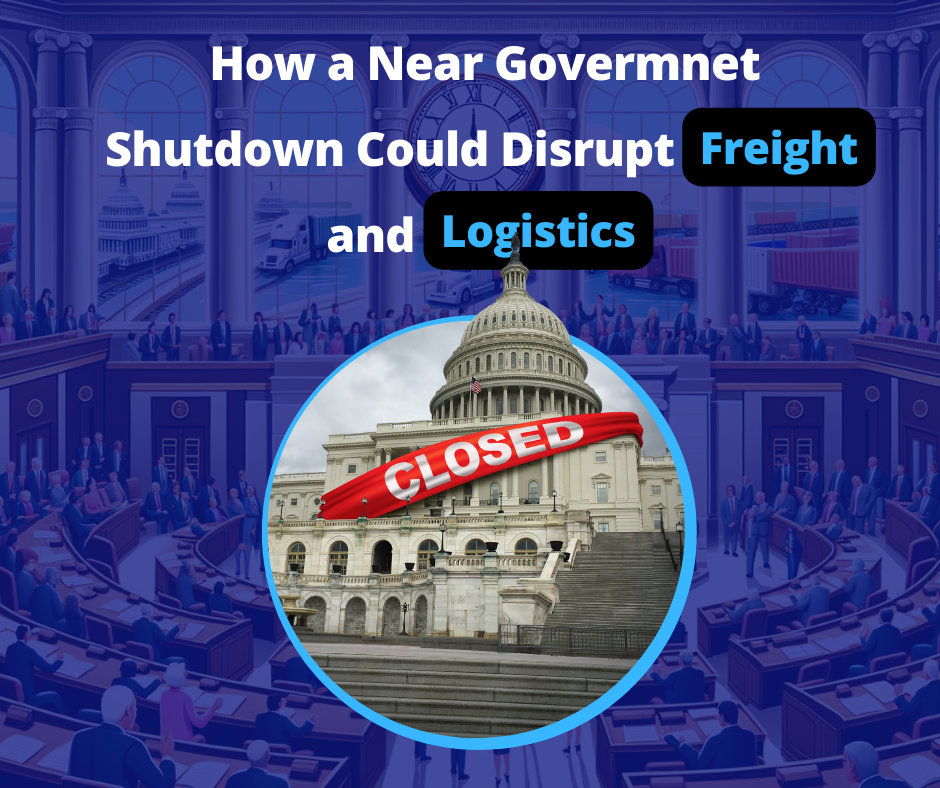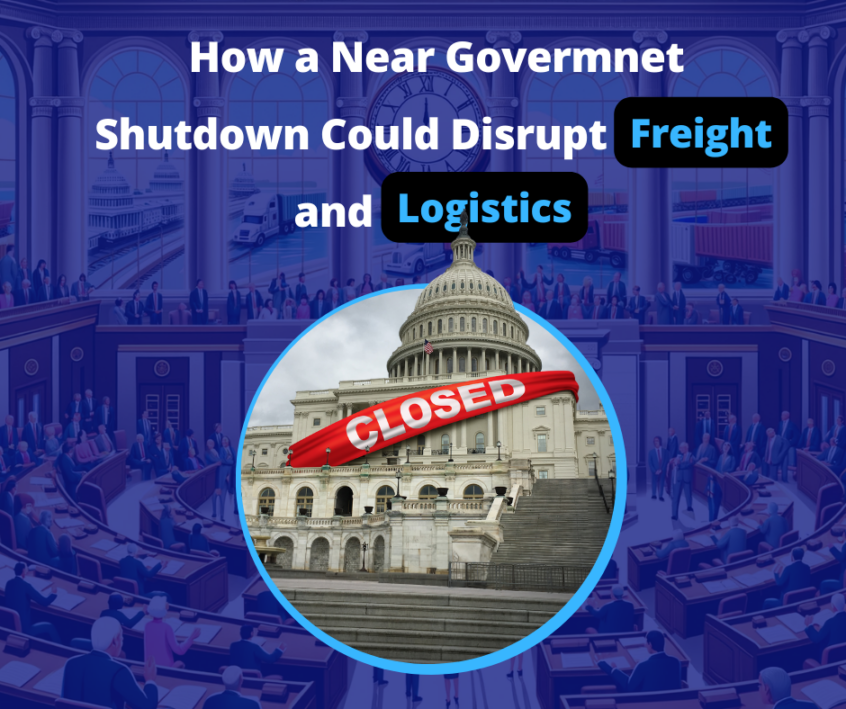
In the ever-evolving global trade and logistics landscape, the prospect of a government shutdown in 2023 raised significant concerns within the industry. With the odds of a government shutdown standing at a worrying 87% as of September 27, 2023, due to Congress’s inability to pass critical appropriations bills, the freight and logistics sectors’ potential consequences have become a sharp focus. This article explores the implications and contingency plans of key federal agencies involved in regulating the U.S. freight economy, shedding light on how such an event could disrupt the intricate web of supply chains.
The Looming Shutdown Threat
The roots of the impending crisis lay in the fact that Congress had yet to pass any of the 12 appropriations bills that dictate discretionary spending levels for the fiscal year. With the new fiscal year commencing on the horizon, lawmakers had until midnight on Saturday to enact legislation to fund programs covered by these appropriations bills. Failure to have done so would result in a complete government shutdown, a scenario reminiscent of 2013 and early 2018 when approximately 850,000 out of 2.1 million non-postal federal employees were furloughed.
The Resilience of the Supply Chain
Amidst the looming uncertainty surrounding the possibility of a government shutdown, the spotlight intensified on the fate of the freight industry, which stands as an indispensable pillar of the U.S. economy. This crucial sector is pivotal in facilitating the seamless movement of goods nationwide, connecting producers with consumers, and underpinning countless industries. While the supply chain has historically demonstrated resilience, it must acknowledge that it’s not immune to disruption.
The industry’s ability to navigate a short-term government shutdown relatively unscathed is contingent upon a shutdown’s duration. According to a report by the Congressional Research Service, during the 2013 government shutdown, the transportation and warehousing sector saw a temporary dip in employment and economic activity. This underscores that even brief disruptions can have discernible impacts. Furthermore, the supply chain’s robustness could be tested if a shutdown persisted for an extended period, as evidenced by the challenges faced during the 2018-2019 government shutdown when cargo movements at ports experienced delays, leading to inventory shortages in some sectors.
Amid these uncertainties, the freight and logistics community maintained a watchful eye on the contingency plans of federal government agencies responsible for overseeing various facets of the industry. One such agency is the Federal Maritime Commission (FMC), which regulates a significant portion of international container shipping in the United States, according to data from the U.S. Bureau of Labor Statistics. Should a government shutdown have occurred, the FMC’s contingency plan, which involved furloughing 94% of its staff, raised concerns within the industry.
This could have disrupted the filing of crucial documents and proceedings that impact the container shipping industry. Similarly, the Federal Railroad Administration (FRA) is vital in ensuring railroad safety. The suspension of safety rulemaking during a shutdown, as outlined in the FRA’s contingency plan, also raised safety concerns. The implications of these agency plans underscore the industry’s vulnerability to disruptions caused by government inaction, necessitating a delicate balance between fiscal responsibility and the continued efficient operation of the U.S. freight and logistics sectors.
Federal Maritime Commission (FMC)
The Federal Maritime Commission (FMC) faced a substantial challenge in the event of a government shutdown, with a significant 94% of its workforce being furloughed. This independent agency holds exclusive jurisdiction over container shipping competition in the United States, effectively ensuring a competitive and dependable international ocean transportation supply chain. However, should a government shutdown ever occur, the vast majority of the agency’s functions would halt, giving rise to notable concerns within the industry.
Shippers and carriers engaged in container trades would encounter formidable obstacles during a shutdown, as they would be rendered incapable of submitting essential filings or applications. Furthermore, the normal flow of adjudicatory and investigatory proceedings before the FMC would experience a temporary suspension, leaving critical matters in limbo. The potential disruption at the FMC carries significant implications, particularly for the container shipping industry. It could set off a chain reaction of delays in cargo movements, ultimately affecting both importers and exporters who rely on the efficient operation of this crucial maritime regulatory body.
Federal Railroad Administration (FRA)
The Federal Railroad Administration (FRA) faces a workforce reduction of 35% in the event of a government shutdown. This agency is responsible for overseeing railroad safety, a mission of paramount importance. The FRA has formulated a plan to constrain regulatory activities to navigate a government shutdown. It is worth noting that this plan involves a rulemaking suspension unrelated to the administration of financial assistance programs.
This approach raises substantial concerns within the industry and the general public, primarily because it involves pausing safety rulemaking. This suspension encompasses rulemakings that pertain to recent train derailments, such as the notable incident in East Palestine, Ohio. Given the significance of these safety regulations, any interruption in their progress poses a significant concern. Ensuring railroad safety is a matter of importance, not only for the industry itself but also for the well-being and security of the public. Therefore, the potential consequences of these regulatory limitations during a government shutdown underscore the critical nature of seamless oversight in railroad safety.
Other Federal Agencies: A Brief Overview
Several other federal agencies responsible for different aspects of freight and transportation have their own shutdown plans and concerns:
Federal Motor Carrier Safety Administration (FMCSA): With 48% of its staff furloughed, the FMCSA would cease many activities, including new rulemaking and safety audits, potentially impacting safety standards in the trucking sector.
Federal Aviation Administration (FAA): Although air freight may experience fewer disruptions due to a lower furlough rate at the FAA, the agency’s inability to issue new certifications and registrations could affect aviation logistics and maintenance.
U.S. Customs and Border Protection (CBP): An 87% furlough rate at CBP could lead to delays in customs processing and cargo inspections, potentially causing bottlenecks at ports of entry.
Federal Transit Administration (FTA): An 80% furlough rate at the FTA might delay funding for transit agencies, impacting public transportation services critical for the movement of goods and workers in urban areas.
Maritime Administration (MARAD): With 76% of its staff furloughed, MARAD’s oversight of the maritime industry could be disrupted, affecting vessel operations and maintenance and potentially impacting waterborne freight transport.
Pipeline and Hazardous Materials Safety Administration (PHMSA): A partial shutdown of PHMSA may affect its ability to enforce safety regulations for hazardous materials transportation, potentially posing risks to the shipping of dangerous goods.
Surface Transportation Board (STB): The STB, which regulates railroads and interstate commerce, would cease its regulatory functions, potentially impacting rail freight operations and pricing.
Wrapping Up
The looming threat of a government shutdown presents significant challenges for the freight and logistics industries. While the supply chain is expected to weather a short-term shutdown, the potential disruptions and delays caused by agency closures can’t be ignored for the future. These disruptions can impact the timely movement of goods, increase costs, and affect the overall efficiency of the logistics and shipping sectors.
The fate of freight during a government shutdown hinges on the duration of the shutdown and the specific agencies affected. A prolonged shutdown could exacerbate disruptions and harm the broader economy. As Congress grapples with appropriations bills, the freight industry and other industries anxiously await a resolution to ensure the uninterrupted flow of goods and services across the nation. The impact on the freight industry in 2023 is a matter of utmost concern, and close monitoring of the situation is imperative for all stakeholders involved.



